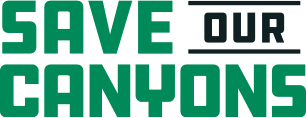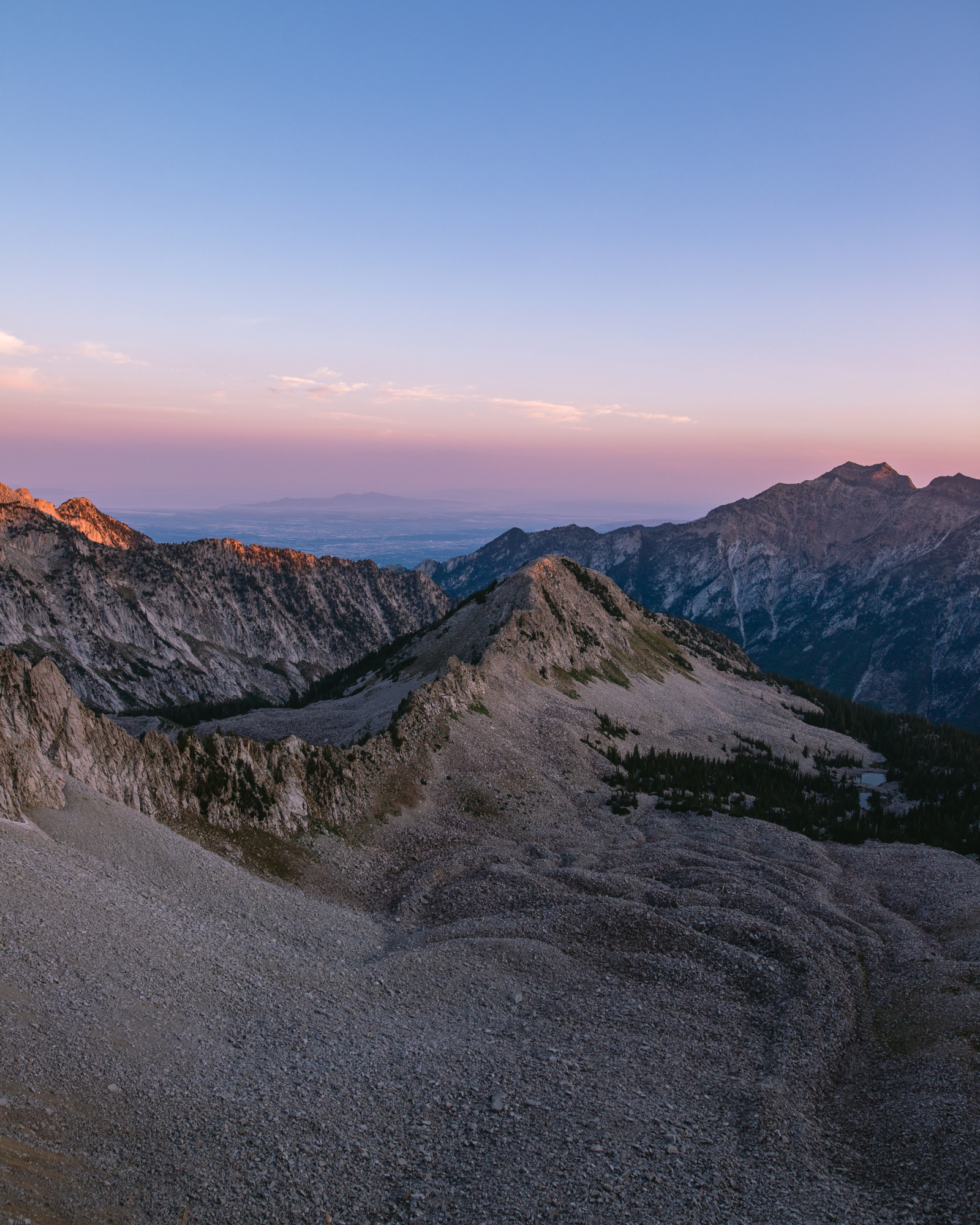Save Our Canyons has been actively engaged in a series of impactful conservation projects and partnerships to protect the beauty and wildness of the Wasatch Mountains. Here is an overview of our 2023 summer season:
Trail Maintenance in Upper Millcreek Canyon (SLRD, September 9th): In collaboration with 13 dedicated volunteers from Goldman Sachs and the Salt Lake Ranger District, SOC embarked on a trail maintenance project in Upper Millcreek Canyon. The teams worked diligently to trim overgrown vegetation along the trail, enhancing safety and accessibility. This effort ensures the well-being of both hikers and cyclists.
Little Cottonwood Trail Cleanup (SLRD, September 1st): With the popularity of the Little Cottonwood Trail, SOC recognized the need for conservation efforts to protect this beloved area. SOC and a group of volunteers joined forces with the Salt Lake Ranger District to address and remove illegal fire rings and garbage and report graffiti in the area.
Memorial Grove Trash Cleanup with Keep Nature Wild, Women of the Wasatch, and HOKA Running (July 31st): SOC collaborated with Keep Nature Wild for a successful trash cleanup in Memorial Grove Park. This event was supported by over 30 enthusiastic volunteers and folks in the neighborhood who took trash bags to assist on their walks, resulting in 216 pounds of trash collected. The collaboration emphasized the importance of local initiatives to help keep our city parks clean.
Road Cleanup in Big Cottonwood Canyon (July 20th): SOC and Keep Nature Wild collaborated to organize a road cleanup event in Big Cottonwood Canyon. With the help of volunteers from CNG Healthcare, we met at the park and ride, and carpooled up to the Spruces Campground. We covered a stretch of approximately 2 miles along the highway's edge. The group collected nearly 200 pounds of roadside garbage, including plastic items, wrappers, cigarette butts, and other debris. After completing the cleanup, the group reconvened at Spruces Campground for a group photo and expressions of gratitude.
Trailhead Cleanup in Little Cottonwood Canyon (SLRD, June 12th): In partnership with the Salt Lake Ranger District, we focused on cleaning up major trailheads in Little Cottonwood Canyon, including the Park and Ride lot, Grit Mill, and the White/Red Pine trailhead. A remarkable turnout of 12 volunteers gathered at the Little Cottonwood Park and ride, dedicating thirty to forty minutes to each trailhead and working in small groups to tackle the task. Our efforts resulted in removing various litter, including granola bar wrappers, straws, a rusted car bumper, a rotting pumpkin filled with Halloween candy, blocks of concrete, and numerous beer cans. As the winter's effects became evident with exposed trailheads, the importance of packing in and packing out diligently was emphasized to preserve the Wasatch.
National Trail Day in Big Cottonwood Canyon (SLRD, June 12th): The Cottonwood Canyons Foundation, The Salt Lake Ranger District, and SOC brought together enthusiastic volunteers on National Trail Day to conduct a multi-project event on the new section of the Bonneville Shoreline Trail that connects Dogwood Recreation Area and Ferguson Canyon. 60 participants gathered together for introductions and waivers before splitting into two groups: one focused on removing the invasive Money Plant, while the other worked on constructing a trail by removing large rocks and stumps while adhering to the Forest Service's trail construction standards for a three-foot-wide pathway with a forty-five-degree uphill slope to ensure the long-term stability of the trail. After three productive hours, the trail team successfully dug 120 feet while the weed removal crew eliminated several hundred pounds of Money Plant. Save Our Canyons expressed gratitude to all involved and encouraged others to join their Wilderness Stewardship efforts.
Money Plant Weed Pull in Big Cottonwood Canyon (SLRD, May 27th): SOC, in collaboration with the Salt Lake Ranger District and the Cottonwood Canyons Foundation, organized a project to remove the invasive species Money Plant from a new section of the Bonneville Shoreline Trail, connecting Big Cottonwood Canyon and Ferguson Canyon. The Money Plant (Lunaria Annua) has grown exponentially in the area, most likely due to its use in gardens. While aesthetically pleasing, Money Plant hinders the growth of native Utah species in their natural habitat. Six community volunteers and several members from both organizations participated, collectively removing 260 pounds of the invasive plant matter.
Dyer's Woad Weed Pull in City Creek Canyon (SLPU, May 20th): SOC partnered with Salt Lake Public Utilities for a weed pull in City Creek Canyon, aimed to prevent seed dispersal before the height of its growth during the summer. Nicole Smeeding from Salt Lake Public Utilities (SLPU) led the day with members from Salt Lake County and a small group of volunteers, working to eradicate a dense section of the invasive Dyer's Woad off the main road. After three hours of hard work, the team successfully removed Dyer's Woad from this specific section of City Creek Canyon. Throughout the day, participants learned about toxic species in Utah from experts at Salt Lake Public Utilities and the Salt Lake County noxious weed program.
2023 Totals:
- We worked with over 100 volunteers, including an average of 8 individuals per project during our Wilderness Stewardship Projects and an average of 2 volunteers during each Advocacy and Grassroots events
- During the 4 major cleanup events we had this season, each averaged 200 lb of garbage collected, making it nearly a total of 800 lb of garbage collected
- During the 4 major weed pull events we had this season, each averaged 250 lb of weeds collected, making it nearly a total of 1,000 lb of weeds pulled and collected.
- During the 25 grassroots and advocacy events this season, Save Our Canyons shared its efforts and helped educate over 2000 individuals on the importance of stewardship and active engagement within policy.
These projects reflect SOC's commitment to protecting the beauty and wildness of the Wasatch Mountains. Through volunteer efforts, community collaboration, and educational outreach we continue to make a significant impact in ensuring these natural spaces remain protected and accessible.
We extend our gratitude to all volunteers, partners, and supporters who have contributed to these efforts, and we look forward to further initiatives.
Image Gallery:


